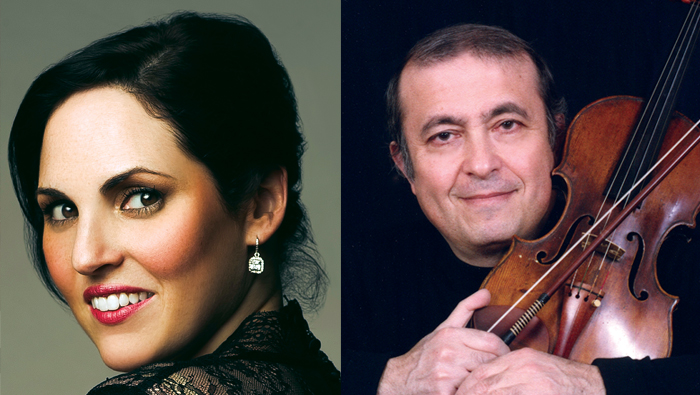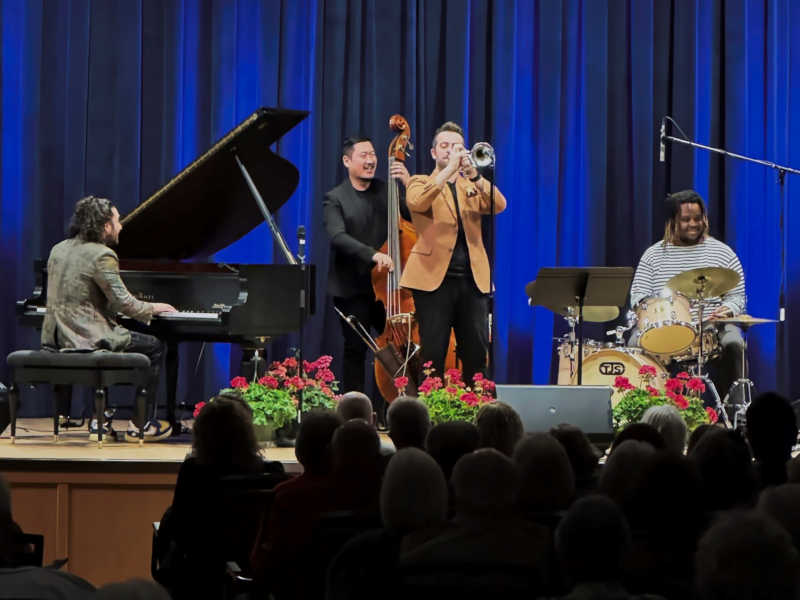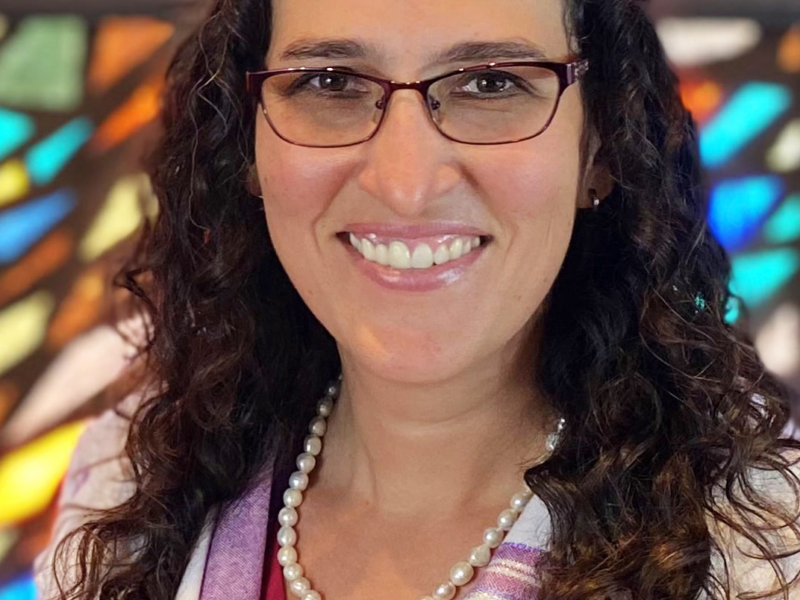Grammy-award nominated soprano Arianna Zukerman will headline the Arizona premier of “Annelies,” an oratorio based on the Diary of Anne Frank, on April 9 and 10. Zukerman, daughter of renowned Israeli violinist and conductor Pinchas Zukerman, has a long and personal history with this piece, which she says resonates with audiences in a very powerful way.
Zukerman performed the world premier of the chamber music version of “Annelies” in The Hague on what would have been Anne Frank’s 80th birthday in 2009. “That kind of blew my mind, because Anne Frank would have been 80 in 2009 and I think my own grandmother was 96 that year. With a different trajectory, she could still be among us,” says Zukerman. A few years later, the composer, James Whitbourn, asked her to sing on the first recording of the piece, which was nominated for a 2014 Grammy for Best Choral Performance.
The oratorio, which bears Anne Frank’s full first name, has taken on new significance for Zukerman over the years. There’s the importance of sustaining the memories of the Holocaust, which has personal implications for Zukerman, whose grandparents were survivors. “As the last survivors are leaving us, it becomes more and more important to present works like this, to tell their stories,” she says.
Becoming a mother brought home the story in a different way. “I have two little Jewish girls and one of them hasn’t quite learned to write yet, but she’s definitely going to keep a journal when she does,” Zukerman laughs.
“Anne Frank is sometimes very personal and sometimes very global in her perspective, but what I am amazed by how relevant what she has to say about our ability to be humane to one another remains,” she says. “What keeps bringing me back is the desire to leave this world a better place than I found it, to teach my kids right from wrong, to never forget, to carry on the legacy of my grandparents … and to continue to come back to the idea that words matter. These words are so important, and when you add the element of music – music is a universal language, which we don’t have to learn to speak; we all come out of the womb speaking music – and if you add what we all understand about music to these words, it brings a subtext to the fore. It’s a very deep piece.”
David Schildkret, who directs the Arizona State University Chamber Singers for the two local concerts, agrees that the music amplifies the message. “We’re dealing with one of the most powerful voices to come out of World War II in The Diary of Anne Frank. And the reason that we still read it all of these years later, and assign it to kids, is that it speaks on its own. What can music add to that? My belief is that it gives it a freshness and immediacy. We get a relationship with something that we’re supposed to think of as a classic. There’s a certain detachment. Music can bridge that. To re-experience it in a way that moves us to a different side of the thing, almost like walking around a sculpture, causes us to rethink it. I think we need to keep doing that if we’re going to keep the memory and powerful horror of the Holocaust alive.”
As a breast cancer survivor, Zukerman now relates to the score in a new way. “Coming back to it with having had that struggle and being helped to survive is such a different situation. It continues to be relevant,” she says.
“There’s a section with text from the morning they left their apartment: ‘The breakfast things on the table. We close the door behind us.’ And I think to myself as a mom, I can’t take the kids to school with the breakfast things on the table. It makes me crazy. I think about Anne Frank’s mother and how that must have felt to her, which is not the perspective I had when I started. So there is always something to learn,” Zukerman says.
Israeli-born violinist David Ehrlich has performed “Annelies” in several different settings, including Prague. As an annual performer with the Red Rocks Music Festival, he offered to bring the oratorio to Phoenix. Ehrlich, who studied with the same music teacher who trained Zukerman’s father in Israel, is a fellow of fine arts at Virginia Tech and co-founded the Renaissance Music Academy of Virginia together with his wife, Teresa, who plays piano in the chamber trio for “Annelies.”
“This music is as powerful as almost anything that I heard, because it has a lot of dignity, and at the same time tells the story from [Anne Frank’s] point of view. The music is accessible; anybody can understand it right away. In all of our performances we have done, people tell me how much they’re moved,” says Ehrlich, who was born in Poland to Holocaust survivors. When they played the piece at a castle in Prague last summer, several elderly people left during the middle. Afterward, Ehrlich spoke with them. They were Holocaust survivors who found the piece overwhelmingly emotional and too much to bear.
“It’s a thought-provoking piece. There are some juxtapositions in the piece that are quite curious. The composer incorporates a Lutheran hymn. There are words from the Catholic mass. What’s the place of those things in telling this story? That alone gets your attention,” says Schildkret, who will be exploring these questions further in his pre-concert talk for both performances.
“Annelies” is a co-production of the Red Rocks Music Festival and ASU Chamber Singers, sponsored in part by the National Endowment for the Arts.
WHAT: Oratorio based on The Diary of Anne Frank by British composer James Whitbourn and librettist Melanie Challenger
WHO: Arianna Zukerman, soprano; David Ehrlich violin; Joshua Gardner, clarinet; Ben Wyatt, cello; Teresa Ehrlich, piano; ASU Chamber Singers; Larry Wyatt, conductor
WHEN:
Saturday, April 9, 2016:
Concert at 7:30 pm with pre-concert talk by ASU
Professor David Schildkret at 7 pm
Temple Chai, 4645 E. Marilyn Road, Phoenix
$18 general admission, $8 students with ID ($2 service fee), redrocksmusicfestival.com, 602-787-1577
Sunday, April 10, 2016:
Concert at 2:30 pm with pre-concert talk by ASU
Professor David Schildkret at 2 pm
ASU, Katzin Concert Hall, Music Building, Tempe
$18 general admission, $8 students with ID ($2 service fee), herbergerinstitute.asu/events/current.php, 480-965-6447





